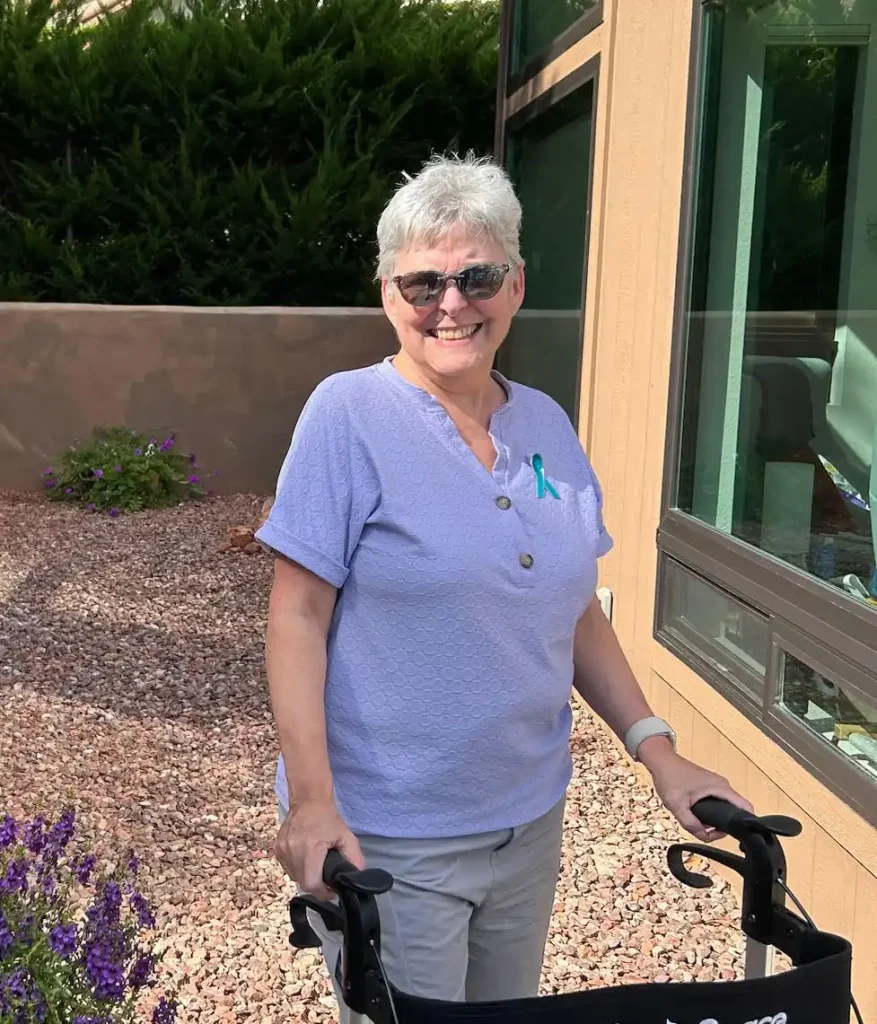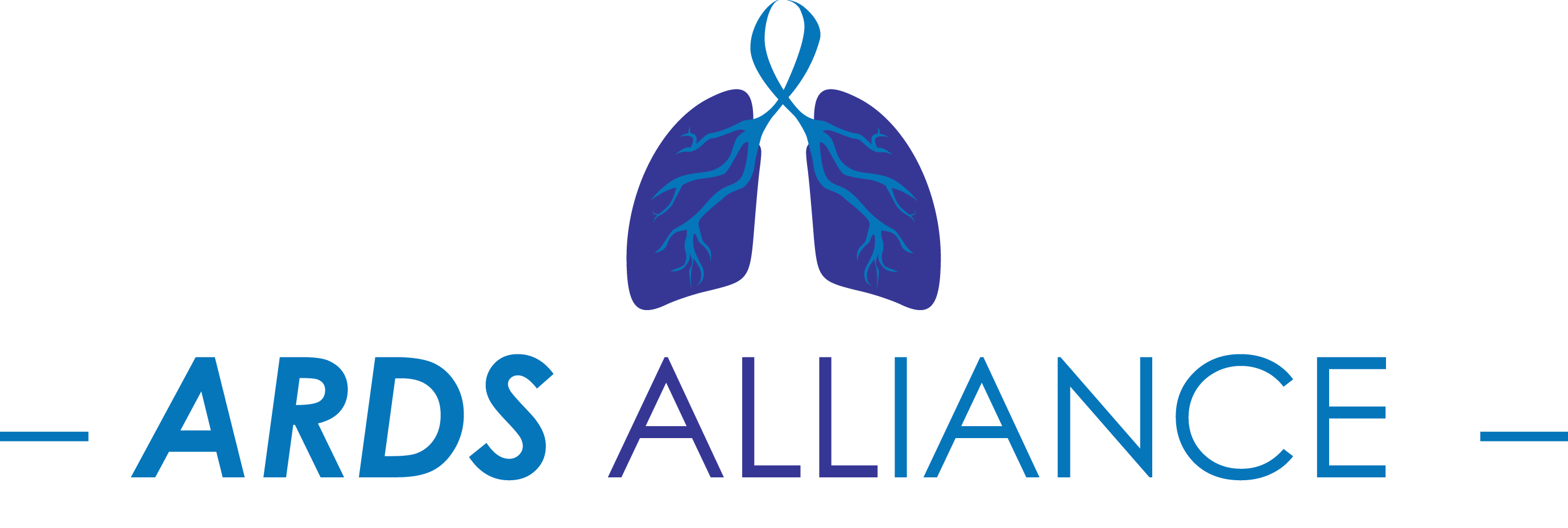 In 2018, I contracted H1N1. One week later, after 3 visits to the ER, I was admitted to the ICU with sepsis, double pneumonia, and ARDS. I spent 3 weeks on a ventilator with a 10% chance of survival. Much of that time I was in a medically-induced coma. During the times I was awake, I felt totally helpless – I couldn’t move much, I couldn’t breath on my own, and I couldn’t talk. As time went on, I lost the ability to write. My sister created a sheet of paper with letters and short words like yes and no. I even had trouble pointing to letters and felt so frustrated that I couldn’t communicate. My family and staff could see that my efforts were stressful so they tried to get me to calm down and stop trying. That felt worse for me because I had no control and I simply wanted to communicate. honestly, that was so awful for me.
In 2018, I contracted H1N1. One week later, after 3 visits to the ER, I was admitted to the ICU with sepsis, double pneumonia, and ARDS. I spent 3 weeks on a ventilator with a 10% chance of survival. Much of that time I was in a medically-induced coma. During the times I was awake, I felt totally helpless – I couldn’t move much, I couldn’t breath on my own, and I couldn’t talk. As time went on, I lost the ability to write. My sister created a sheet of paper with letters and short words like yes and no. I even had trouble pointing to letters and felt so frustrated that I couldn’t communicate. My family and staff could see that my efforts were stressful so they tried to get me to calm down and stop trying. That felt worse for me because I had no control and I simply wanted to communicate. honestly, that was so awful for me.
In addition, I experienced ICU delirium and terrifying hallucinations. I was completely convinced that I had been kidnapped and was held at a futuristic medical experimental facility. I spent time trying to figure out how to escape and let my family know where I was. I had no idea that they actually had been there with me every day and evening.
They finally decided they were going to need to place a tracheostomy. Much to everyone’s surprise, I somehow was able to breathe on my own. It was my 50th birthday so I now call it my breathe day.
I continued to have delirium and hallucinations. I was shocked to discover that I had to relearn to walk. My first attempt, I could only take a couple steps before I was exhausted. I remember trying so hard to figure out what they were telling me to do. I had to lift one foot and move it forward and hold on to the walker and breath. All at the same time! My brain felt totally overloaded with all of that – not to mention that I was so weak. It was physically and cognitively exhausting.
With PT, OT, and SLP, I worked so hard to figure out how to walk again and eat again. I was desperate to get better enough to go home. I was terrified that I would die in an acute care rehab center.
Once again, I beat the odds and after 3 weeks on a ventilator and 1 week on a telemetry floor, I was discharged home. I remember the drive home. I was so amazed by the colors and the sights. Everything seemed extremely vivid and somewhat surreal. I saw a cow in the field and was just stunned by that. I hadn’t seen any animals for a month and it felt so exciting and awe-spiring.
I was so grateful for the ICU professionals who saved my life, but I had no idea that my arduous journey was just beginning. When I got home, I was confused for a while and couldn’t remember things in my home. It took time to feel comfortable again. And, I was shocked by how weak I was. I was not able to get up off my couch on my own and to sit in a different chair. I had to have someone walk behind me for over a month because even with my walker, I was a high fall risk. It felt like a big milestone to be released to walk around the house on my own.
With the help of a great physical therapist, I spent the first year working hard to rebuild physical strength, balance, and stamina. Unfortunately, the rest of my outpatient medical team did little to help me understand or assist me with the other issues related to my ICU stay. I didn’t get outpatient Speech and Language therapy to help me with swallowing or cognitive rehab. I didn’t get any assistance with my pulmonary functioning. And, despite asking, I didn’t get help with cognitive deficits.
Unfortunately, I found that none of my providers knew about post-intensive care syndrome (PICS) or even what ARDS was. So I was left to try to figure out what was happening to me and what to do by myself. It was difficult since I was having trouble reading and learning due to executive function deficits. I finally found information from Vanderbilt University CIBS Center and learned about PICS. I joined their support group and it was so amazing to find others who were having similar issues. I no longer felt alone.
I also found help from an immunologist and pulmonologist regarding the immune deficiency that led to my severe illness and the damage that I suffered from ARDS.
I can no longer work as a psychologist, but I now do what I can to advocate and raise awareness about ARDS and PICS to help others. I believe that we can do better to both help protect psychological well-being for those in the ICU, but we absolutely need to provide better help for those who have survived ARDS and are now suffering from PICS.
I am dedicated to helping educate outpatient health providers -especially mental health providers so they can help people living with PICS. This week is ARDS Awareness Week and I am hoping that my story will help others understand more ARDS and PICS and that there is help and hope.
